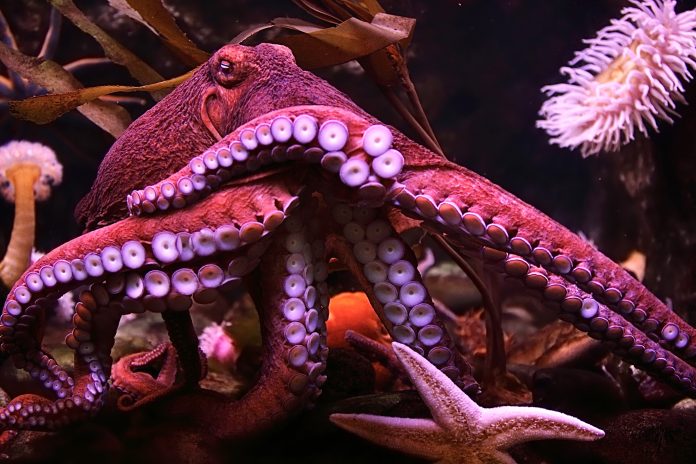
Sign Animal Save Movement’s Petition To Help Stop Octopus Factory Farm On The Canary Islands From Brutally Killing Up To One Million Octopuses For Food Each Year
By Lauren Lewis
You can help all animals and our planet by choosing compassion on your plate and in your glass. #GoVeg
RELATED ARTICLES
Banning Cruelty: New Legislation Aims To Ban Octopus Farming In The U.S.
New bipartisan legislation has just been introduced in the U.S. to ban commercial octopus farming and prohibit imports of farmed octopus from foreign countries.
The...
Outrage In Yellowstone! Grizzly Bear Killed By Wildlife Officials & Left With Head & Paws Cut Off
Photo by: Trisha McFarland / Cowboy State Daily
A photo of a dead grizzly bear with its head and paws cut off has caused an...
Inside Florida’s Illegal Horse Meat Trade: Undercover Footage Shows Racehorse Being Shot & Butchered
A heart-wrenching discovery of illegal horse slaughter has emerged, with video footage exposing the tragic killing of a racehorse named 'Funny Biz,' who was...
Popular stories
News
Two Risso’s Dolphins Have Been Rescued & Released After Becoming Stranded Off The Coast Of Massachusetts
Photo by: Andrea Spence / © IFAW, Activities conducted under a federal stranding agreement between IFAW and NMFS under the MMPA.
A full day effort...
News
Breaking! Last Chance For Animals’ Undercover Investigation & Legal Complaint Launches Police Probe Into Marineland Canada
An undercover investigation of Marineland Canada and subsequent legal complaint by Last Chance For Animals (LCA) have resulted in the Ontario Police Department investigating the entertainment park’s use...
Breaking News
The Critically Endangered Vaquita Porpoise Is On The Brink Of Extinction With Only 10 Remaining In The Wild
Illustration by Frédérique Lucas
The UNESCO World Heritage Committee decided this week to maintain the “in danger” status for the habitat of the critically endangered...


